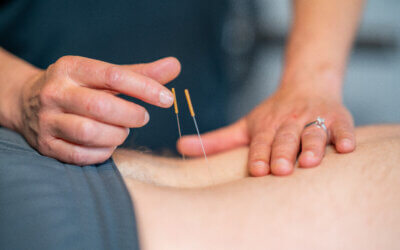With the wealth of fitness information available online, athletes now have more resources than ever to help them perform at their best. Nutrition plans, workout routines and the newest breakthroughs in medical news are available at the click of a button. However, it may not always be the best idea to follow the latest fitness trends on Instagram or TikTok. Much of the information available online was not written by experts, and following the advice of influencers may land you in sports physical therapy.
Sports- and fitness-related injuries are incredibly common. Over 8 million people become injured playing sports or exercising each year, according to the CDC. In order to prevent an injury that could land you in physical therapy, experts recommend avoiding fitness advice that does not come from a licensed physical therapist, primary care physician or a doctor of sports medicine.
What fitness trends should I avoid?
- Too little diversity — Many athletes make the mistake of only working out the muscle groups that they think they need to perform well at their chosen sport. The problem with this is that muscles operate under the idea that you use it or lose it.
Leaving out muscle groups entirely runs the risk of injuring your weaker muscles during play. For example, soccer players may have strong legs but weak upper bodies. Sports therapy can help reduce these imbalances and make an athlete more well rounded to help reduce future injury risk.
- Too much muscle mass — Some athletes will incorporate strength training to make sure that all muscle groups are exercised, but this can be taken too far. It is relatively easy to increase muscle mass. However, it is much more difficult to strengthen the joints, tendons, and ligaments that support and connect muscle tissue. While sports therapy can help an athlete recover from this injury, moderating muscle gain may reduce the risk of ligament damage.
- Not enough recovery — A good rule of thumb should be, “Train hard, but recover harder.” Unfortunately, many athletes do the opposite. Without adequate rest between workouts and training sessions, your muscles and joints do not have enough time to repair themselves.
Not getting enough rest can also cause you to become mentally exhausted. This makes you more prone to making mistakes while training, eventually resulting in injury that will land you in sports physical therapy.
Can a licensed physical therapist help me avoid sports injuries?
The answer is a resounding yes. Not only is physical therapy an effective way to treat sports-related injuries, but training with a licensed physical therapist can help you avoid injury altogether.
The experts at Continuum Wellness can get you started with a free screening to determine which areas of your body may be prone to injury. We can then use trusted methods such as balance and gait training and strengthening exercises to help you perform at your best.
Contact our team today for more information or to schedule an initial appointment.



